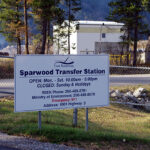Home »

Driverless cars only a myth believed by trusting geeks
Op-Ed Commentary
Sorry to break the news to all the driverless car fanatics out there who blissfully believe they’ll soon be cruising down the road drinking a double-double while texting their friends about the latest cat video they saw on Facebook. So sorry because it’s not going to happen. Not in your lifetime. Nor mine. And not likely in the lifetime of anyone reading this prophetic screed.
No, this is not a Luddite speaking or a Neanderthal crawling out of his cave. Just someone trying to apply a little common sense to the future and who doesn’t believe Elon Musk is God. Or Steve Jobs for that matter. Both men are/were computer geniuses and I take my hat off to them. And they both took computer hardware and software to new heights never before imagined. But what are computers best known for?
They crash!
And would you really want these far-from-perfect machines in charge of your life or the lives of your loved ones as you careen down the road at 100 clicks or more while a silicon chip and an unreliable piece of hardware on the roof makes millions of algorithmic decisions a second that determines whether you live or die.
I don’t think so.
You’ve probably never head of Joshua Brown. He owned a tech company in Ohio and was a Tesla enthusiast who on May 7, 2016 was driving a Tesla Model S in Florida when he put it in Tesla’s autopilot mode, which, is supposed to control the car in highway driving. Against a bright spring sky, the autopilot sensors (Lidar) failed to properly see an 18-wheeler van crossing the highway in front and the car continued full-speed ahead going under the semi-trailer “with the bottom of the trailer impacting the windshield of the Model S,” said Tesla in a blog post. Brown, 62, was killed instantly in the crash.
According to an article in The Guardian, Tesla issued a 537-word statement in which it “repeatedly went out of its way to shift blame for the accident.” The statement went on to say the car’s software was designed to nudge drivers to keep their hand on the wheel and pay attention. “Autopilot is getting better all the time, but it is not perfect and still requires the driver to remain alert,” the company said. “Our condolences for the tragic loss.”
Does that sound like driverless “driving” to you? Are you going to rush out and put a deposit on a Tesla Model 3, the company’s new consumer-friendly car that will sell for only US$35,000 and bring an “enhanced” autopilot feature with it?
Brown’s death hasn’t deterred 400,000 potential Model 3 buyers who put down more than US$600 million in deposits for the much-anticipated vehicle that is now experiencing production delays and customers demanding return of their deposits.
But let’s get real. In a recent article in The Economist, often called the world’s most respected magazine, the venerable periodical states flat out in an article “The long winding road for driverless cars” is only a dream in the far out future. “Forget hype about autonomous vehicles being around the corner – real driverless cars will take a good deal longer to arrive.”
The article points out that it has taken two decades of automotive engineering to put hybrid and battery vehicles on the road and they still only make up two percent of new car sales. Safety is the key issue, the magazine said. “ . . . in short, they must be capable of going anywhere, in every conceivable condition, and be able to cope with the most unpredictable of situations. That means travelling on dirt tracks off the map, in blizzards, thunderstorms or pitch darkness, with animals bursting out of bushes, children chasing runaway balls and crazy people doing crazy things.”
In other words, not a chance!

But even The Economist didn’t mention the primary reason driverless vehicles aren’t practical – people, especially men, love to drive and they’re never going to cede their passion to a machine. I recall being in London once when I saw a bunch of men standing in what looked like a prayer circle around what appeared to be a bright but ordinary vehicle to me. “It’s a Mercedes-McLaren,” whispered a Brazilian businessman to me. “Five-hundred thousand American.” (Pictured above)
Love like this will never supersede geeks’ desire to own the ultimate computer toy. And that’s a damn good thing.
– Gerry Warner is a retired journalist who believes his beloved 1964 Valiant, slant-six was the highest form of automobile technology ever created or needed!








